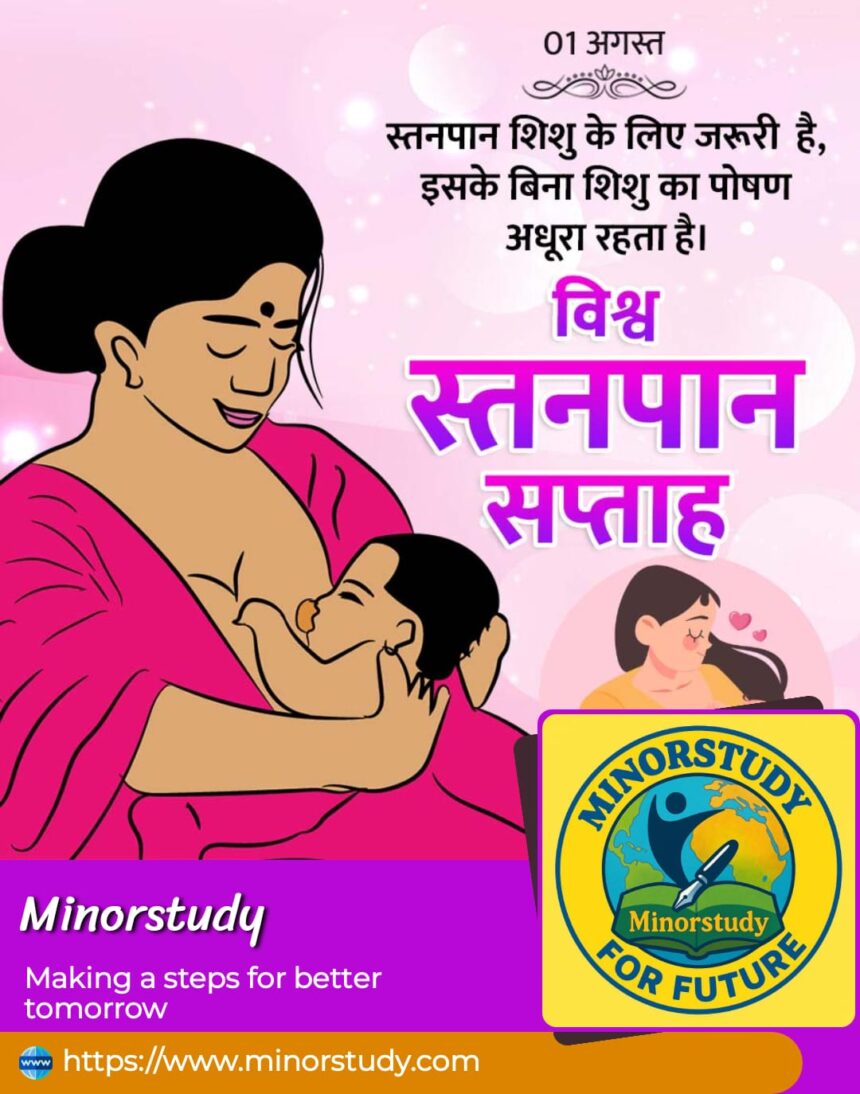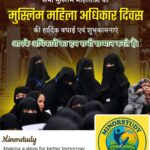👶 Introduction: A Week That Nourishes the World
Every year from August 1 to August 7, the world celebrates World Breastfeeding Week (WBW) to emphasize the life-saving and life-sustaining value of breastfeeding. This globally observed week isn’t just about nutrition—it’s about empowering mothers, supporting families, and building healthier societies from the first latch onward.
- 👶 Introduction: A Week That Nourishes the World
- 🕰️ History of World Breastfeeding Week
- 📌 Timeline
- 🧠 10 Surprising & Powerful Facts About Breastfeeding
- 🎯 Significance of World Breastfeeding Week
- 🌐 2025 Theme and Focus
- 🎉 Observance and Activities
- ❤️ Wishing on World Breastfeeding Week
- ❓ Frequently Asked Questions (FAQs)
- Q1: How long should a mother breastfeed her child?
- Q2: Is formula milk a safe substitute?
- Q3: Can working mothers breastfeed effectively?
- Q4: Is breastfeeding painful?
- Q5: Can mothers breastfeed in public?
- 💬 Key Takeaways (Important Points)
- 🧘♀️ Impact on Daily Life
- 📢 Conclusion: More Than Just Milk — It’s Power, Protection, and Progress
Breastfeeding is one of the most natural yet under-supported acts of maternal and child care. In a world full of distractions and commercial formulas, this week brings the focus back to nature’s first gift—a mother’s milk.
Let’s dive deep into the history, facts, FAQs, timeline, significance, daily life impacts, and why this week holds immense importance in our society today.
🕰️ History of World Breastfeeding Week
1990: At an international meet by WHO and UNICEF, the Innocenti Declaration was made in Florence, Italy, highlighting the importance of breastfeeding.
1991: The World Alliance for Breastfeeding Action (WABA) was formed to mobilize efforts worldwide.
1992: The first World Breastfeeding Week was celebrated with 70 countries participating.
Today: Over 170 countries observe WBW annually with diverse themes promoting breastfeeding.
📌 Timeline
| Year | Event |
|---|---|
| 1990 | Innocenti Declaration signed |
| 1991 | WABA established |
| 1992 | First WBW celebration |
| 2000s | Themes expanded to include workplace support and community roles |
| 2016 | WBW aligned with UN’s Sustainable Development Goals (SDGs) |
| 2025 | Focus on climate, sustainability & inclusive support for breastfeeding families |
🧠 10 Surprising & Powerful Facts About Breastfeeding
🍼 Breast milk contains over 1,000 proteins that support brain development and immunity.
⏱️ Within the first hour of birth, breastfeeding can reduce infant mortality.
🛡️ Colostrum, the first milk, acts like a baby’s first vaccine.
💔 Lack of breastfeeding causes nearly 820,000 child deaths annually worldwide (WHO).
🌎 Exclusive breastfeeding for 6 months could save $300 billion in global health care costs.
🧬 Breastfeeding reduces the risk of breast and ovarian cancer in mothers.
💼 Supportive workplace policies increase breastfeeding rates by over 25%.
👶 Babies who are breastfed are less likely to develop asthma, obesity, or type-2 diabetes.
🔄 Breast milk adapts its composition to the baby’s age and health.
🌿 It’s eco-friendly—no packaging, no waste, zero carbon footprint!
🎯 Significance of World Breastfeeding Week
Health Benefits: Supports both infant and maternal health.
Emotional Bonding: Builds a secure, emotional bond between mother and child.
Nutrition Security: Provides optimal nutrition tailored to the baby’s growth.
Gender Empowerment: Recognizes the unpaid labor of mothers and promotes shared responsibility.
Workplace Rights: Campaigns for paid maternity leave and breastfeeding spaces at work.
Climate & Sustainability: Encourages natural feeding over formula production, reducing environmental impact.
Social Awareness: Helps combat stigma and misinformation surrounding breastfeeding in public or extended breastfeeding.
🌐 2025 Theme and Focus
The theme for World Breastfeeding Week 2025 revolves around:
“Nurturing the Future: Breastfeeding for a Healthier Planet and Empowered Generations”
This theme connects breastfeeding with:
Environmental consciousness
Maternal support systems
Inclusive workplace policies
Sustainable development goals
🎉 Observance and Activities
Here’s how the world celebrates World Breastfeeding Week:
| Event Type | Description |
|---|---|
| 🤱 Breastfeeding Awareness Walks | Local and national level walks with breastfeeding families |
| 🧾 Workshops | Covering nutrition, latching techniques, and psychological benefits |
| 🧡 Hospital Campaigns | Baby-friendly hospital initiatives |
| 💻 Online Webinars | Hosted by WABA, WHO, and UNICEF |
| 📸 Social Media Campaigns | Hashtags like #WBW2025, #EmpowerBreastfeeding, #BreastIsBest |
| 🏫 School & College Awareness | Sessions for teenagers and young adults about future parenting |
❤️ Wishing on World Breastfeeding Week
🌼 “Happy World Breastfeeding Week! Let’s nourish the world, one child at a time.”
🌸 “Salute to all mothers – your milk is the first step to a healthier world.”
🌟 “Support, educate, and empower – this week and always.”
❓ Frequently Asked Questions (FAQs)
Q1: How long should a mother breastfeed her child?
WHO recommends exclusive breastfeeding for the first 6 months and continued breastfeeding along with complementary foods up to 2 years or more.
Q2: Is formula milk a safe substitute?
Formula milk is an alternative, but it lacks the antibodies, live cells, and hormones found in breast milk.
Q3: Can working mothers breastfeed effectively?
Yes! With pumping support, flexible hours, and workplace lactation rooms, many mothers balance both.
Q4: Is breastfeeding painful?
It might be initially, but with proper latching techniques, it becomes painless and joyful.
Q5: Can mothers breastfeed in public?
Absolutely! It is a human right, and many countries legally protect this act.
💬 Key Takeaways (Important Points)
Breastfeeding saves lives and reduces health costs.
It empowers women both biologically and socially.
Support systems (family, workplace, society) matter immensely.
Stigma and myths need to be challenged collectively.
Observing WBW strengthens public health awareness globally.
🧘♀️ Impact on Daily Life
For Mothers: Improved postpartum recovery, emotional bonding, reduced cancer risk.
For Babies: Strong immunity, healthy brain development, emotional security.
For Families: Financial savings, less medical expenditure.
For Society: Healthier generations, empowered women, reduced environmental waste.
📢 Conclusion: More Than Just Milk — It’s Power, Protection, and Progress
World Breastfeeding Week isn’t merely a health campaign—it’s a movement of love, survival, and sustainability. It is the bridge between generations and a call to action to support the first form of nutrition in every child’s life.
Let us celebrate mothers, educate families, and build a future where breastfeeding is encouraged, protected, and celebrated with pride—not just for a week, but forever.
🕊️ “Nourish your child, nurture the world.”








